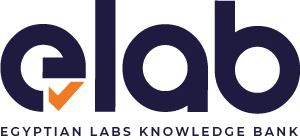
Have Any Questions?
FAQ's
Frequently Asked Questions
Account Management
- How much does it cost to have an account and access courses on ELAB?
Creating an account on ELAB is completely free. To register, click here.
Once you create and activate your account on ELAB, you will get an unlimited access to all courses for free (provided by GAHAR).
- How can I access my certificates?
You can always access your certificates through the “My Certificates” tab/page.
To access the “My Certificates” tab/page, please check the following guides and follow the steps included:
- How can I create a new account?
To create a new account, follow the following steps or watch this video :
- On the Homepage , click on the "Sign up " button on desktop, or the "Log in" link in the mobile menu.
- Enter the required information in the registration form, then click on "Create Account" button.
- Check your email for the Activation Email received from ELAB and click on the activation link in the email. This will take you to the "Activate Your Account" page on the platform. -please note that you may receive our emails in your Junk or Spam folders. Please make sure to whitelist our email address and domain to avoid receiving future emails in your Junk/Spam folder.
- On the Activate Your Account page, click on the "Activate" button.
- After activating your account, click on the "Log in" link to log in to the platform with your username and password.
Lab Accreditation & Licensing
- What are the Accreditation Decision Rules?
A Laboratory can achieve accreditation by demonstrating compliance with certain accreditation decision rules. These rules mandate achieving certain scores on a standard level, chapter level, and overall level as the accreditation decision is composed of four decisions.
1st Decision: Status of Accreditation for a laboratory (3 years)
- Overall compliance of 80% and more, and
- Each chapter should score not less than 70%, and
- No single whole standard is scored as not met.
2nd Decision: Status of Conditioned Accreditation for a laboratory (2 years)
- Overall compliance of 70% to less than 80%, or
- Each chapter should score not less than 60%, or
- Up to one standard not met per chapter, and
- No single not met NSR standard.
3rd Decision: Status of Conditioned Accreditation for a laboratory (1 year)
- Overall compliance of 60% to less than 70%, or
- Each chapter should score not less than 50%, or
- Up to two standards not met per chapter, and
- No single not met NSR standard.
4th Decision: Rejection of Accreditation- Overall compliance of less than 60%, or
- One chapter scored less than 50%, or
- More than two standards not met per chapter, or
- Not met NSR standard.
Laboratories having status of accreditation or conditioned accreditation with elements of non-compliance are requested to:
- Submit a corrective action plan for unmet EOCs and standards within 90 days for 1st decision, 60 days for 2nd decision and 30 days for 3rd decision to the following email: reg@gahar.gov.eg
- Apply and pass the accreditation survey in 2 years for 2nd Decision and 1 year for 3rd Decision.
Accreditation is valid for 3 years. Accreditation may me be suspended or withdrawn if:- The Laboratory fails to pass follow up surveys in case of conditioned accreditation.
- The Laboratory fails to submit corrective action plans in case of presence of one not met EOC or more.
- The Laboratory fails to pass unannounced survey, The Laboratory fails to comply with GAHAR circulars when applicable.
- What is the scoring system of accreditation standards?
- During the survey visit, each standard is scored for the evidence of compliance (EOC).
- These are mathematical rules that depend on summation and percentage calculation of scores of each applicable EOCs as follows:
- Met -when the laboratory shows 80% or more compliance with requirements during the required lookback period with a total score of 2.
- Partially met -when the laboratory shows less than 80% but more than or equal to 50% compliance with requirements during the required lookback period
with a total score of 1. - Not met -when the laboratory shows less than 50% compliance with requirements during the required lookback period with a total score of 0.
- Not applicable -when the surveyor determines that, the standard requirements are out of the organization scope (the score is deleted from the numerator and denominator).
- While most EOCs are independent, stand-alone units of measurement that represent the structure, process, and/or outcome, few EOCs are dependent on each other. Dependence means that compliance with one EOC cannot be achieved (or scored) without ensuring compliance with other EOCs.
- Scoring of each standard:
- Met: when the average score of the applicable EOCs of this standard is 80% or more.
- Partially met: when the average score of the applicable EOCs of this standard is less than 80% but not less than 50%.
- Not met: when the average score of the applicable EOCs of this standard is less than 50%.
- Scoring of each chapter
- Each chapter is scored after calculating the average score of all applicable standards in this chapter.
- How will the internal quality control programs be reviewed?
The written procedures are reviewed and the workers are asked about the procedures followed for quality control, both in the analyzes that they perform, and the implementation of these procedures in each device or analysis is verified from the beginning of the necessary reagents and chemicals to the method of use and the rate of use to verify the quality of the analyzes and document that, whether on paper or Electronically according to each device and its specifications, up to the procedures that the technician, doctor or specialist performs in case the quality control results do not match the target.
- What is acceptable for proficiency tests (PT)?
What is required is that the laboratory has written procedures for external quality control and participates in external quality programs, and that the implementation will be gradual and accept a certain percentage of the work volume in the laboratory, at least, that is subject to an external quality program or programs. Other analyzes not shared in external quality programs are subject to alternatives that have an existing international reference, such as comparing the results of the analyzes with other laboratories accredited and recognized for their efficiency.
- What are the requirements for reference laboratories?
- Laboratory accredited by GAHAR (in the current stage, if there is no laboratory accredited by GAHAR, a laboratory accredited by international standards is selected).
- The laboratory must be accredited in the same field of service provided.
- Does the General Authority for Accreditation and Health Control approve one of the hospital services, such as the lab, radiology, oncology department, or physical therapy (without accrediting the hospital in general?
No, if it is not a reference laboratory, which is the case in most cases, then it is not separately registered and approved. The exception: that the service has a separate administration and a separate budget (that is, it is a health facility independent of the hospital) Example: university hospital laboratories.
- Is it acceptable to register laboratories with a single activity/specialist (pathological or genetics)?
It is accepted to register all types of laboratories that provide clinical examination services in all their branches according to the licensing decision issued to them by the central administration of laboratories.
- Are the criteria applied to blood banks and pathology?
The criteria apply to pathology labs only.
- The Scope of Accreditation? (Scope of service)
It is all the tests that are done inside the lab and have devices that the lab takes all of them, and no part of the tests is selected for approval.
All areas of work inside the lab are already included in the accreditation, and no other analyzes are carried out except through the referral lab approved by the authority or on one of the international accreditations in the field of contracting with it with the advanced lab for accreditation.
- Are lab accreditation standards valid only for mega-labs and not valid for small labs?
Laboratory standards depend on the existence of a correct and effective quality system, regardless of the size and nature of the laboratory.
- How are the laboratories’ branches accredited?
According to the regulations and laws regulating the work of laboratories and their licenses, there is no name for a branch, and therefore each branch is treated as an independent laboratory and all standards are applied to it according to the field of service.
In the event that the branch sends the analyzes to the main branch, it is considered a reference laboratory and must be approved by GAHAR first.
- Can any laboratory be approved, even if it is outside the scope of implementing the stages of the health insurance project?
Any laboratory registration is accepted throughout the Republic.
- What are the requirements for a health program for workers?
- Item no. 202 of the Labor Law mentioned periodic medical examinations.
- Item no. 219 of the Labor Law mentions the periodic medical examination (The facility is obligated, in coordination with the General Authority for Health Insurance, to conduct periodic medical examinations for all employees of the facility to maintain their health fitness on an ongoing basis and to discover what appears from occupational diseases in their early stages.
- Schedule of Occupational Diseases Law 148 of 2019 Social Insurance and Pensions Law.
- In case of laboratory has a limited number of staff, how can leadership be achieved?
The laboratory determines the hierarchy, the role and the function of each job, depending on the qualifications and training of each individual.
With regard to the registration of members of the medical professions, the laboratory submits a request to register the members of the medical professions working in the laboratory by sending the required documents and dividing the workers in terms of the nature of work with their licenses to practice their profession on the e-mail before the visit for evaluation so that the auditors can verify and review the necessary information about the workforce before the visit.
- What are the documents required to be sent when applying for registration with GAHAR?
The following documents are required to be sent when applying for lab registration with the General Authority for Healthcare Accreditation and Regulation (GAHAR):
- Lab License
- Technical Director License
- Facility License (if the lab is inside a medical facility)
- Registration of members of the medical profession
Getting started is easy
Register today and start learning from experts to expedite your lab’s accreditation journey.
Registration is totally free.
Already have an account? Sign in

